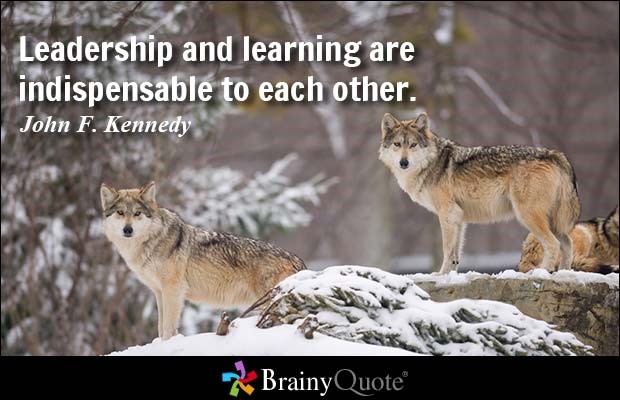 Sasha Libolt, in a recent LinkedIn Pulse post asks the question, “How do you lead when your team is smarter than you?” This is a great question and one that can trip up a lot of managers. In her post Sasha provided three points: admit what you don’t know; know what you have to offer; and leverage the strengths of the team. These are all great themes and important to consider.
Sasha Libolt, in a recent LinkedIn Pulse post asks the question, “How do you lead when your team is smarter than you?” This is a great question and one that can trip up a lot of managers. In her post Sasha provided three points: admit what you don’t know; know what you have to offer; and leverage the strengths of the team. These are all great themes and important to consider.
Managing a team can take on several behaviours. It can be autocratic (command and control), it can be collaborative (commitment) or it can be anywhere in between. Fundamentally it has to start with the manager recognizing that he doesn’t know what he doesn’t know. Most of us are aware of the conscious competent model. The four growth stages that people go through from first being unconsciously incompetent (don’t know what they don’t know) to moving to consciously incompetent (they realize that they don’t know) to consciously competent (they have learned the new skill and know that they can do it) to finally being unconsciously competent (they do it without thinking and it becomes second nature to them). For Sasha’s first point then, one has to know what they don’t know, then admit it, but do it in a way that it inspires others to examine their own weaknesses and collectively to work together to fill those gaps.
“People ask the difference between a leader and a boss. The leader leads, and the boss drives.” — Theodore Roosevelt
A helpful model I have used in working with individuals to fill gaps in competencies is one I know as the Growth Model. This model has three stages: Formative, Normative and Integrated. When someone is new on the team or learning a new skill they are in the Formative stage, which means that as a manager you have to do a lot of “telling and showing”, teaching the basics. As they move into the Normative stage, for the manager it becomes more about giving them encouragement and doing some tweaking— correcting what needs to be corrected and reinforcing what’s working well. Over time the skill(s) this person learned becomes almost second nature. They breath and live it, they have become Integrated and the manager must just let them do it, checking in every once and a while to see how they are doing. The skill here for the manager is to relinquish control over to the employee and allow him or her to become accountable for their own actions. As the employee moves along the growth curve the manager gives over more of the reins and at the same time creates space for the employee to learn, sometime to fail, but always to grow.

The two models I have discussed above is where a manager becomes a leader. It is where the manager first recognizes their own gaps in knowledge or ability, and while working on improving their own competencies, finds members of their team who can fill them. Not only has that individual shown leadership by being transparent about their own capabilities, but they have solicited the help of the team to complete them and have demonstrated that learning is a continuing process — that by demonstrating their own process of continuous learning, they become an example for the others to follow.
_____________________________________________________________________________________
John Whitehead, coaches’ individuals and organizations in becoming more effective by helping them improve their interpersonal communications, emotional intelligence and resiliency.
*******Are you wondering if having a Leadership/Personal Development Coach is right for you? Contact John for a complimentary, exploratory coaching session at [email protected]********
If you would like to get notifications for when I post, please go to my blog site and register. I promise I will not spam or use your email address for anything else. You can visit and register for my blog at https://johnkwhitehead.ca/blog-2/
